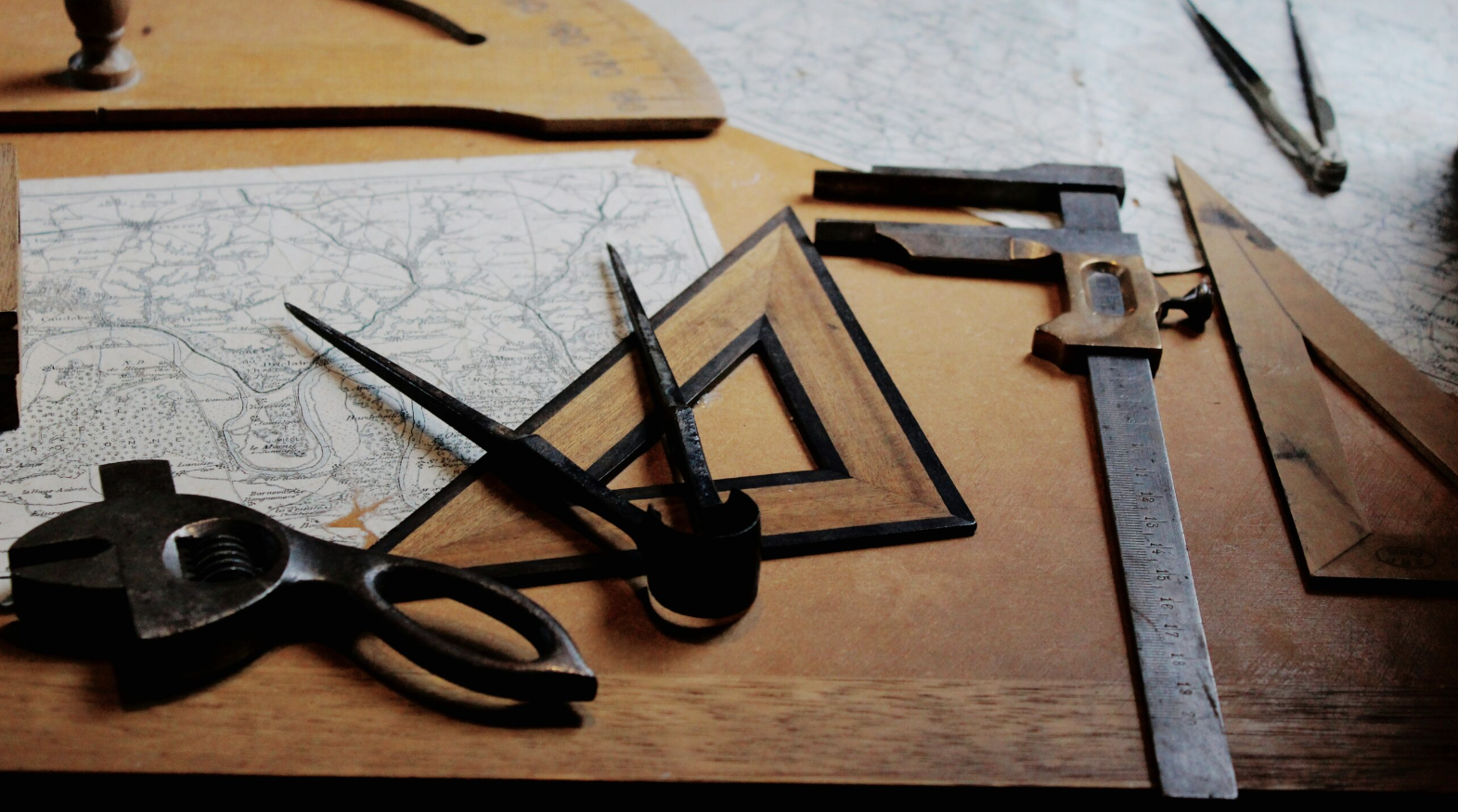I continually meet people who believe that training students in the Catholic intellectual tradition and the skilled trades is not merely a paradox (which I grant), but a contradiction. “Some people are meant for college; others for the trades,” I often hear. But there is something profoundly anti-Christian about this seemingly harmless statement. It is a justification for the great divorce between the head and the hands—between the active and the contemplative. This is not merely a sociological problem. It is a theological one. And it is a theological problem that was alive and well in the cultural context that Christ entered into.
The Greeks believed that their gods worked. Athena wove garments. Apollo kept sheep. Poseidon built ramparts. And Hephaestus constructed palaces and forged armor. They were not transcendent—and the Greeks were perfectly aware of this. Herodotus, the ancient Greek historian, for instance, explicitly wrote that the Greeks believed “that the gods are of human nature” (Herodotus, 1.131). But this did not imply that work was good; rather, the gods tried to avoid it every chance they had.
For the Greeks, work was a curse, not a benefit. Herodotus wrote:
I know that in Thrace and Scythia and Persia and Lydia and nearly all foreign countries, those who learn trades are held in less esteem than the rest of the people, and those who have least to do with artisans’ work. . . . This much is certain: that this opinion . . . is held by all Greeks.
—Herodotus, Persian Wars 2.167.1–2
Such contempt led various Greek states to forbid citizens from physical labor. The Spartan government outlawed their citizens from engaging in manual labor. Thebes mandated that men be retired for a minimum of ten years before they could engage in politics. Disdain for workers was so high in Athenian culture that the government actually created a law forbidding citizens to deride one another for their occupations. One of Athen’s most cherished sons was Aristotle, who wrote in his Politics, “The citizens must not lead the life of craftsmen . . . for such a life is ignoble, and inimical to virtue.”
Jesus, by revealing true theology, inverted the entire social order.
The Romans weren’t much different. Roman consul and lawyer Cicero once remarked that all workers “are engaged in vulgar business; for a workshop can have nothing respectable about it.” Plutarch promoted Sparta’s system, in which no one could work for his living. And Livy, Dionysius, and Gellius all tell us that “no Roman was allowed to devote himself to commerce or the handicrafts.”
The Greeks hated work, the Romans hated work, and into this Greco-Roman world, the Word became flesh and spent most of the years of his life at a carpenter’s bench.
This was scandalous to the contemporaries. The second-century Greek philosopher Celsus, for example, stressed the fact that Christianity’s founder had engaged in manual labor as evidence of the religion’s illegitimacy. It was as if someone had set off political dynamite in the ancient world. Unlike the Greeks, the Christians taught that their God was transcendent and thus did not need to work. But he chose the Incarnation and so also chose work, coming “to serve and not to be served.” Jesus, by revealing true theology, inverted the entire social order.
Work, meaning here manual labor, became a prize of the Christian tradition. And here, I am not only thinking about St. Paul finding his trade as a tentmaker as an integral part of his missionary life but also of the monasteries that arose throughout Europe centuries later. The prized intellectuals in the libraries and scriptoria were also the farmers on the fields. The monastic life moved from the chapels where they prayed to the libraries where they studied to the fields where they worked. This dance between the chapel, the library, and the fields revealed the incarnate life of the Christian; the head, the heart, and the hands all moving in union with one another toward beatitude.
Our modern universities have not seen this great Christian insight of the love of labor as something to be obtained. Rather, they have preferred the pagan neglect and, at worst, disdain for manual labor. This is a great loss. It’s a great loss for many reasons, especially for our modern age, which suffers so much from anxiety. We do live in an age of anxiety. The trades can offer substantial aid to many of the problems that we’re now suffering.
Many feel financial anxiety. Because one gets paid to train in the trades—without having to suffer debt—one can escape part of this worry. They will not be tempted to put off marriage or children because they’re worried about money. Instead the trades enable one to start their adult life sooner rather than later.
We live in an oblique, technological world. So many of us have no idea how the structures and systems that we depend on for our livelihood actually work. And so we begin to think that they control us rather than we them. There is an anxiety that arises from that. In the trades, one begins to understand how our world functions, alleviating this anxiety.
There’s also an anxiety that arises from the fact that we don’t see a tangible difference in our world as a result of our labor. So many of us who spend our days looking at a computer screen for a job don’t have that wonderful benefit that the tradesman does of being able to, at the end of each day, take a step back and admire what he did that day. He can point to it; others see it. He has created a real structural difference in our world.

There is another source of anxiety arising from our transient lives. Where we were born and live is often not where we now live and work. We are rootless. But the trades are move-proof. You can’t export building to China or to Mexico. Tradesmen have a real chance of setting down roots in one place, being next to their family and friends forever without having to give up these great bonds of love and loyalty that our transient American society often does.
By overlooking the trades, we overlook these and many other benefits. I do not think that it is an accident that our contemporary society is witnessing a collapse in higher education—intellectual, moral, and financial. Neither of these features of contemporary society—the breakdown of higher education and the disdain for labor—should be shocking. A deep love of study and work emerged from the heart of the Church; from the person of Jesus, the Word become carpenter. Our society cannot enjoy the goods of Christ without Christ himself.
At the College of Saint Joseph the Worker, we aim to see a reconciliation of work and study. The college seeks to form students into effective and committed members of their communities by teaching them the Catholic intellectual tradition while training them in skilled and dignified labor. We train high-performing students in the Catholic intellectual tradition to earn their BA degrees in theology while also training them in the skilled trades: electrical, carpentry, plumbing, and HVAC. And because you are paid to train in the skilled trades, our students will graduate financially net positive instead of up to their eyeballs in debt, as happens far too often today.
We fully reject that college has to be a financially crippling extension of adolescence. Instead, we believe that college ought to be the formation of the Catholic adult to know, love, and creatively shape the world as it’s given to us by God. This means rejecting the false dichotomy between the head and the hands, and instead teaching our students to lead both active and contemplative lives.
Our students are brilliant; many of them top of their classes. They are students whose teachers are shocked when they hear they want to be a plumber. These are not the rejects; they are the valedictorians. And thus they are a scandal to the present generation, which would say, as did Christ’s contemporaries: “Is this not the carpenter’s son?”
* * *
Learn more about the College of Saint Joseph the Worker here.
If you or someone you know would like to receive the college’s email newsletter,
sign up here.
